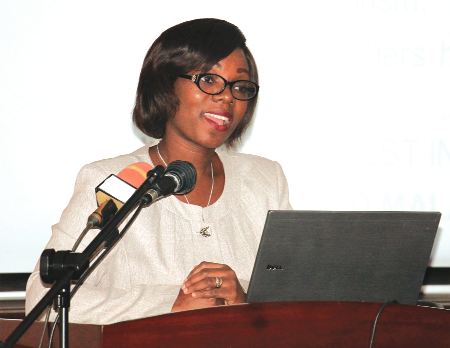
Ghana makes gains in malaria control
Ghana has made gains in the fight against malaria in the last decade, according to figures from the National Malaria Control Programme (NMCP).
The Programme Manager of the NMCP, Dr Keziah Malm, said malaria-related deaths across all ages in the country were reduced by 89 per cent from 2,799 in 2012 to 308 at the end of 2020.
Advertisement
Also, malaria-related admissions for all ages reduced by 27.8 per cent from 428,000 in 2012 to 308,887 in 2020, while the case fatality rate among children under five years decreased from 0.6 per cent in 2012 to 0.12 per cent in 2020.
Dr Malm made these known at a webinar symposium as part of activities marking this year’s World Malaria Day last Sunday.
It was on the theme: “Draw the line against malaria”.
Progress
Dr Malm said malaria mortality had reduced drastically because in 2012, eight people died every day from malaria, but that had been reduced to one person dying from the disease every day in 2020.
She said millions of people in the country had been reached with effective life-saving tools such as long-lasting insecticide-treated nets (ITNs), Artemisinin-based combination therapy (ACTs), seasonal malaria chemoprevention (SMC) and indoor residual spraying (IRS).
Dr Malm, however, said sustaining the gains made required extra efforts from everyone.
For instance, she said, funding threatened to slow down progress, particularly across Africa, where high-burden countries were facing critical funding gaps.
Therefore, the programme manager said, unless countries found innovative ways to mobilise adequate resources to bridge the funding gap, get the resources and technical support they needed to implement malaria control plans, including the effective utilisation of available resources, malaria resurgence would likely take many more lives.
Ghana’s National Strategic Plan (NSP) estimates a 90 per cent reduction in malaria mortality and a 50 per cent reduction in case count by 2025, using 2019 as a baseline.
Through the implementation of a mix of interventions, the country has positioned at least six districts to achieve pre-elimination by 2025.
Consequently, Dr Malm said sustained funding was required to fully implement the interventions to achieve the 2025 NSP targets towards the global elimination of the disease by the 2030 target.
Additionally, she said, that increased investment and commitment from the government and the private sector was critical to revitalise progress against malaria.
Another challenge, the programme manager said, was the fact that some health workers still did not test to confirm whether an illness was malaria or not, a situation which, she said, had led to an overuse or irrational use of antimalarial and rapid diagnostic tests (RDT).
Dr Malm, therefore, encouraged health workers to adhere to standards and protocols for malaria control and also confirm all malaria-suspected cases before treatments were given.
Adherence
On adherence to the treatment of malaria, she said it was important for patients to complete the full dosage of the medication even after the fever had gone down.
She said another critical measure to sustain the gains made was for pregnant women to report to the nearest health facilities as soon as they got pregnant and to start taking the antimalarial sulfadoxine-pyrimethamine (SP) as early as possible.
The SP reduces maternal malaria episodes, maternal anaemia, low birth weight and neonatal mortality, and it is free.
Dr Malm also said in the face of the COVID-19 pandemic, the country needed to do more to protect everyone who was at risk of malaria.
“We can’t focus on beating the COVID-19 at the expense of accelerating progress against malaria, a preventable and treatable disease,” she added.



